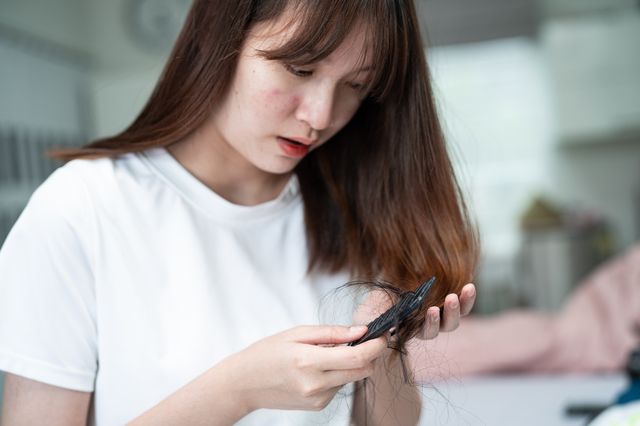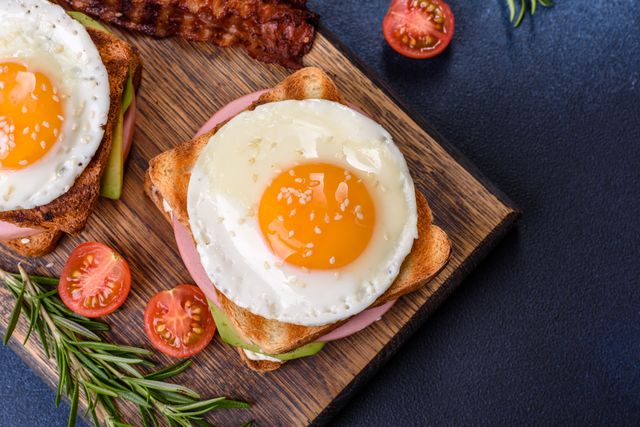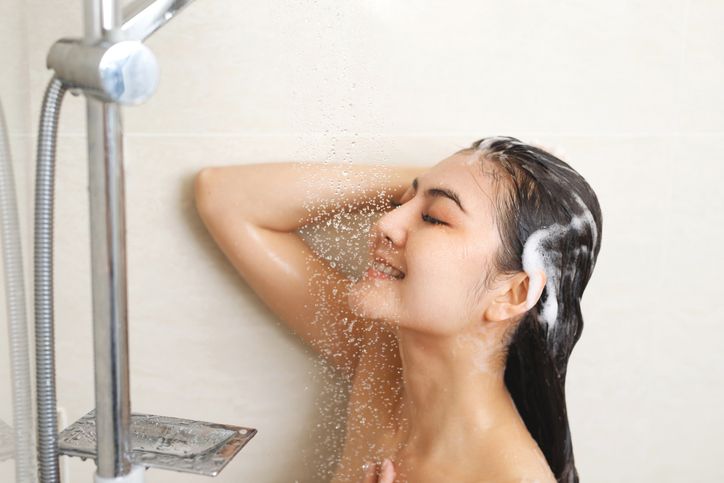
- Home
- Trend
- Weight Loss Strategies
- Acne Tips
- Hair Health Information
- Blemish Removal Tips
- Acne Scar Removal Tips
- Muscle Building Techniques
- Intimate Care Tips
- Postpartum Intimate Care
- Eye Bags Wiki
- Tips for Face Slimming
- Secret of Permanent Hair Removal
- Breast Enlargement Tips
- Cure to Snoring
- Marionette Lines
- Skin-Tightening Secrets
In today’s high-stress world, few people are immune to hair loss. When people start noticing hair loss, they often turn to external solutions like changing shampoos or trying new hair care products. However, the most effective solution may start from within—through lifestyle and dietary adjustments. One of the most affordable and effective methods is adopting a hair loss prevention diet, especially for early-stage hair thinning. Instead of constantly switching up hair products, eating the right foods may actually work better to prevent hair loss! So, what exactly is a hair loss prevention diet? Let’s find out!
Is Diet Really Linked to Hair Loss? Discover How Food Affects Hair Growth!

A hair loss prevention diet involves selecting specific foods and nutrients to help slow down or prevent hair loss. The core idea is that nutrition has a direct impact on hair health and growth. The goal is to supply the body with essential nutrients that support strong, healthy hair.
Such diets often focus on increasing the intake of key vitamins and minerals like Vitamin D, zinc, iron, and biotin—nutrients that are closely tied to hair health. In addition to boosting intake of beneficial nutrients, it also involves reducing intake of potentially harmful ingredients like excess sugar, fat, and salt, which can negatively affect hair growth.
It’s important to note that this approach may not be effective for all types of hair loss. For severe cases, professional treatments such as medication or hair transplant surgery may be required. However, for mild or early-stage hair thinning, a hair-supportive diet can be a natural and effective way to improve the condition.
8 Superfoods for Stronger Hair: What to Eat More Of to Combat Hair Loss

Many everyday superfoods are rich in nutrients that nourish the scalp and hair, preventing breakage and promoting growth. These foods are typically packed with vitamins, minerals, and proteins essential for maintaining hair health. Below are 8 hair-friendly superfoods that may help reduce hair fall and improve hair texture when added to your diet:
1. Eggs
Eggs are high in protein and Vitamin B7 (biotin), both of which support the production of keratin—the key protein in hair. Keratin helps maintain the structure and strength of your hair, promoting growth and preventing damage. Eggs are therefore an excellent food choice for improving hair health and texture.
2. Flaxseeds
Rich in omega-3 fatty acids, flaxseeds help keep the scalp moisturized and reduce dryness. These healthy fats also protect hair from breakage. A 28g serving of flaxseeds contains about 6,388mg of omega-3—although oily fish like salmon still contain more, flaxseeds are a great plant-based alternative to support hair and scalp health.
3. Avocados
Packed with healthy fats and Vitamin E, avocados are great for promoting hair growth. They also provide fatty acids that help reduce hair fall and nourish hair from within. The result? Shinier, healthier, and stronger strands.
4. Black-Colored Foods
In traditional Chinese medicine (TCM), hair is considered a reflection of blood and kidney health. Black foods like black beans, black sesame seeds, black fungus, black dates, black glutinous rice, seaweed, spinach, and black-boned chicken are believed to nourish the kidneys and promote hair growth. These foods may also support beauty and delay aging, making them ideal for strengthening hair from the root.
5. Green Vegetables
Leafy greens such as spinach, broccoli, and kale are rich in folate, iron, Vitamin C, Vitamin A, and calcium. Folate supports cell growth and metabolism, iron improves oxygen transport in the blood, and the other nutrients help strengthen the scalp and follicles.
6. Sweet Potatoes
Sweet potatoes are rich in beta-carotene, which the body converts to Vitamin A. This helps produce sebum to keep the scalp moisturized and supports hair growth. Sweet potatoes are also rich in Vitamin C, calcium, and other nutrients beneficial for healthy hair.
7. Bell Peppers
Bell peppers, especially yellow ones, are extremely high in Vitamin C—one yellow pepper contains nearly five times more than an orange! Vitamin C supports collagen production and serves as an antioxidant to protect hair from oxidative stress. Bell peppers also contain Vitamin A, which helps maintain scalp health.
8. Oysters
Oysters are one of the best sources of zinc, a key mineral for hair growth and repair. Zinc deficiency is a common cause of hair loss, and getting enough zinc in your diet can help maintain healthy follicles and promote regrowth.
免費體驗
F8 Hair Regrowth Treatment
1 Minute Self-Registration
Date should not be before minimal date
4 Foods That Can Worsen Hair Loss: Avoid the “3 Highs + 1 Spicy”
While eating the right foods is important, it’s equally crucial to avoid foods that can trigger or worsen hair loss. Here are four types of food you should try to reduce:
1. High-Salt Foods
A diet high in salt can negatively impact overall health, especially kidney function and blood circulation. Poor circulation can prevent hair follicles from getting enough nutrients, leading to hair loss.
2. High-Fat Foods
Fatty foods increase sebum production and may cause clogged pores and oily scalp. Excess sebum can block blood flow to hair follicles, reducing the nutrients they receive and worsening hair thinning.
3. Spicy Foods
Overconsumption of spicy foods may increase scalp oiliness, clog hair follicles, and lead to inflammation. In TCM, spicy food can cause “damp heat” in the spleen and stomach, affecting hormone balance and metabolism, potentially accelerating hair loss.
4. High-Sugar Foods
Too much sugar can thin hair and increase androgen levels, which in turn raise DHT production—a key cause of hair follicle shrinkage. Sugar metabolism also produces organic acids that can strip hair of shine and moisture.
6 TCM-Inspired Hair Loss Recipes: Nourish Your Hair Naturally at Home
You may have seen many home remedies for hair loss online. Here are 6 hair-nourishing recipes recommended by TCM practitioners. These recipes are easy to make, use simple ingredients, and can effectively prevent hair loss when incorporated into your routine:
1. Rose and Hawthorn Tea
Ingredients: 6–7 dried rosebuds, 6–7 slices of dried hawthorn, 3g barley
Instructions: Steep ingredients in 500ml of hot water for 10–15 minutes
Benefits: Relieves liver qi stagnation and promotes blood circulation, ideal for people with stress-induced hair loss.
2. Goji and Black Bean Tea
Ingredients: 10g goji berries, 15g black beans, 3g barley
Instructions: Simmer ingredients in 4–5 bowls of water for 10 minutes, then steep for another 10 minutes
Benefits: Nourishes the liver and kidneys, boosts blood supply to support hair growth.
3. Qi and Blood Tonic Soup
Ingredients: Angelica root, astragalus, red sugar, red dates
Benefits: Enhances qi and blood circulation, prevents hair loss. Some users reported noticeable improvements in hair volume and cold sensitivity after 2 weeks of daily use.
4. Black Hair Soup
Ingredients: 24g polygonum multiflorum, 15g black sesame, 15g prepared rehmannia, 3 red dates, 15g mulberries
Instructions: Soak ingredients in 8 bowls of water for 20 minutes. Boil over high heat, then simmer on low for 1–1.5 hours until reduced to 3–4 bowls.
Benefits: Tonifies liver and kidneys, replenishes blood and essence—ideal for those with premature graying or thinning hair.
5. Hair Growth Congee
Ingredients: Black rice, black beans, red dates, black sesame, red sugar, goji berries
Instructions: Soak goji and black beans in advance. Combine all ingredients in a pot with plenty of water and simmer for about an hour.
Benefits: Long-term consumption supports hair growth.
6. Peach Kernel and Goji Congee
Ingredients: 30g peach kernels, 15g goji berries, 50g polished round-grain rice Instructions: Rinse and crush the peach kernels. Add all ingredients to a pot with water, bring to a boil, then simmer for 30 minutes.
Benefits: Boosts qi and blood, nourishes kidneys, strengthens hair health.
Want Faster Results? Try Perfect Medical’s F8 Hair Regrowth Treatment!
When dealing with hair loss, sometimes the most effective approach is to seek professional treatment. While many hair growth therapies exist, they can often be expensive, risky, or uncomfortable. However, Perfect Medical’s F8 Hair Regrowth Treatment stands out for being affordable, low-risk, and comfortable.
This treatment uses medical-grade low-level soft laser technology to deeply and evenly penetrate the scalp. It enhances blood circulation, nourishes and activates hair follicles, and promotes scalp cell regeneration. This creates an ideal environment for healthy hair growth while effectively reducing hair fall.
Unlike diet-based methods, the F8 treatment delivers visible results quickly. After just a few sessions, you may notice less shedding and faster regrowth. It's ideal for those experiencing receding hairlines, thinning at the crown, sparse patches, M-shaped hairlines, or male-pattern baldness.
Book Now: Perfect Medical F8 Hair Regrowth Treatment免費體驗
F8 Hair Regrowth Treatment
1 Minute Self-Registration
Date should not be before minimal date
FAQ

Apart from dietary therapy, what other ways can help prevent hair loss?
When it comes to preventing hair loss, in addition to dietary therapy, there are other effective strategies you can adopt. Maintaining a healthy lifestyle is crucial for hair health. Getting enough sleep, eating well, exercising regularly, and managing stress all help reduce the risk of hair loss. Excessive stress and poor lifestyle habits can disrupt hormone levels, which in turn affect hair growth. It’s also important to avoid overusing chemical-based hair dyes and styling products like gels, as these can damage the hair. Keeping the scalp and hair clean and hygienic is another key aspect of preventing hair loss. Regular trims, avoiding overly tight hairstyles, and using gentle shampoos and hair care products can help minimize shedding. Most importantly, if you notice significant hair loss or any unusual changes in your scalp or hair, consult a doctor or dermatologist early. Personalized advice and treatment can make a big difference. By combining these approaches, you can better protect your hair and reduce the risk of hair loss.
Is dietary therapy effective for all types of hair loss?
Dietary therapy tends to be more effective for hair loss caused by nutritional deficiencies or general health issues. However, for hair loss due to other causes, such as genetics, the results may be limited. Therefore, dietary therapy is most suitable for individuals whose hair loss can be improved by changing their eating habits. For cases like hereditary hair loss, dietary changes may offer only limited support and should be considered alongside other treatments.
How long does it usually take for dietary therapy to work?
The time it takes for dietary therapy to show results varies depending on the individual and the cause of hair loss. Typically, it may take several weeks to a few months of consistent effort to notice visible improvements. Some people might see changes sooner, while others may need more time. In general, it's recommended to maintain a healthy diet long-term to support hair health effectively.
Can vitamin B7 supplements help improve hair loss?
Vitamin B7 (biotin) helps strengthen hair, promote hair growth, and maintain healthy hair. It can play a positive role in improving hair loss, especially when taken alongside other vitamins and minerals. While supplements may help, you should consult a doctor before using them to ensure they’re suitable for you, as high doses of biotin may cause side effects in some people. A balanced diet with enough vitamin B7 and other nutrients is also key to keeping your hair healthy.
Can dietary therapy effectively treat receding hairlines, widow’s peaks, and bald spots?
Dietary therapy can help improve general hair health issues like thinning hair or poor hair quality. However, for more noticeable concerns like receding hairlines, M-shaped hairlines, or bald spots, the effectiveness of diet alone is often limited—these are usually caused by genetic and hormonal factors. In such cases, it’s advisable to consult a medical professional to explore other treatment options such as medication or hair transplant surgery.








